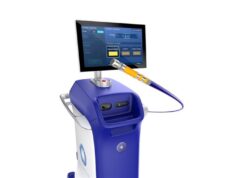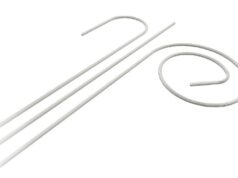
Results of the ENCORE study have shown that autonomic regulation therapy in patients with moderate to severe chronic heart failure and impaired heart function is well tolerated, safe, improves the heart’s ability to pump blood, and reduces the frequency and severity of symptoms associated with chronic heart failure.
Results from the ENCORE clinical study, which is an extension of the ANTHEM-HF (Autonomic neural regulation therapy to enhance myocardial function in heart failure) study, were presented during a late breaking clinical trials session at the 19th Annual Meeting of the Heart Failure Society of America (HFSA; 26–29 September, Washington DC, USA) and showed that patients with chronic, reduced ejection fraction heart failure on stable pharmacological therapy and treated with autonomic regulation therapy for 12 months via electrical stimulation of the cervical vagus nerve experienced a statistically and clinically significant:
– Improvement in heart pump function: average left ventricular ejection fraction increased from 33.2% at baseline to 39.5%; average left ventricular end-systolic volume decreased 10% from 102ml to 92ml;
– Reduction in heart failure symptom burden; NYHA class improved in 94% of patients;
– Improvement in quality of life (assessed by Minnesota Living with Heart Failure Questionnaire);
– Increase in functional capacity (assessed by six-minute walk distance); and
– Improvement in autonomic regulation of resting heart rate.
Inder Anand (University of Minnesota Medical School, Minneapolis, USA), chair of the ANTHEM-HF clinical study steering committee and presenter of the ENCORE study, commented, “Patients with heart failure continue to be at high risk of increased morbidity and mortality. They need new therapies, such as autonomic regulation therapy, that work synergistically with evolving forms of drug therapy. The results from the extension of the ANTHEM-HF study provide important insights into the safety and durability of autonomic regulation therapy. During the six- to 12-month follow-up period, none of the patients experienced serious adverse events related to autonomic regulation therapy, and the improvements in cardiac function both in terms of ejection fraction and reverse remodeling suggest that autonomic regulation therapy is ready to be tested in a randomised, control trial in which a larger cohort of optimally-managed chronic heart failure patients from the USA and the EU would be randomised to a treatment group and a control group to more extensively evaluate safety and efficacy.”
The ENCORE study was a prospective, multicentre, open-label, extension of the ANTHEM-HF study during which the effects of autonomic regulation therapy–with the Cyberonics Vagus Nerve Stimulation Therapy system–were evaluated in chronic heart failure patients with New York Heart Association (NYHA) Class II and III heart failure, QRS complex interval less than 150 milliseconds, and reduced heart pumping function (left ventricular ejection fraction less than 40%). According to investigators, patients enrolled in the study received optimal heart failure pharmacological therapy prior to and during all phases of study.
Forty-nine patients previously enrolled in the ANTHEM-HF study were elected to participate in the ENCORE study and received autonomic regulation therapy for an additional six months (12 months total). All patients received continuously-cyclic, natural-frequency autonomic regulation therapy previously described in the publication of ANTHEM-HF results. Safety was assessed throughout the ENCORE study and outcome measures were assessed after 12 months of autonomic regulation therapy and compared to baseline values of the ENCORE cohort.
Preliminary results of the ANTHEM-HF study, presented in 2014 at the European Society of Cardiology Congress in Barcelona, Spain, showed significant improvement in cardiac function with the Cyberonics Vagus Nerve Stimulation Therapy system. Click here to find out more.









